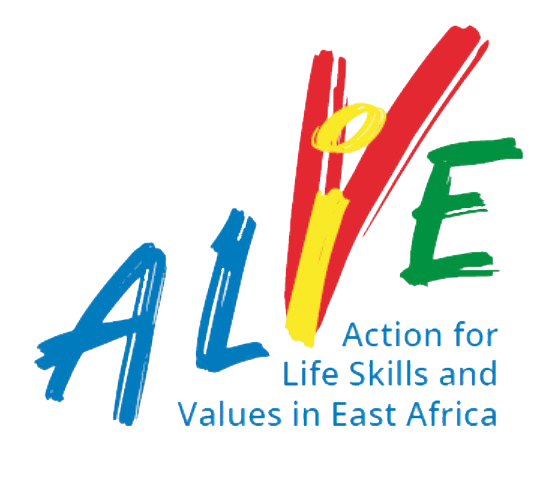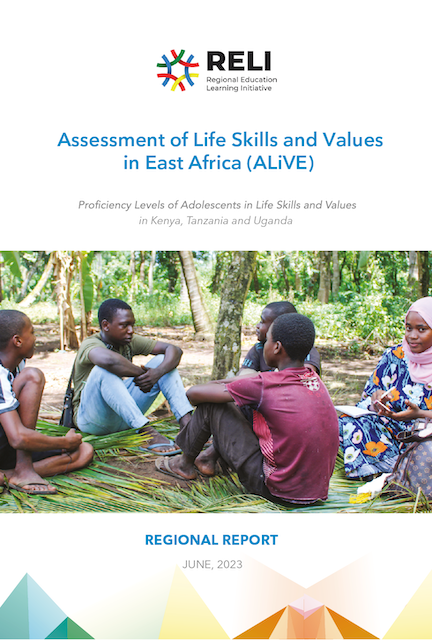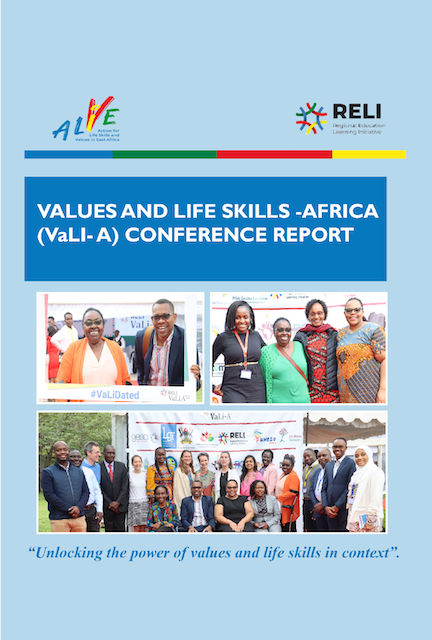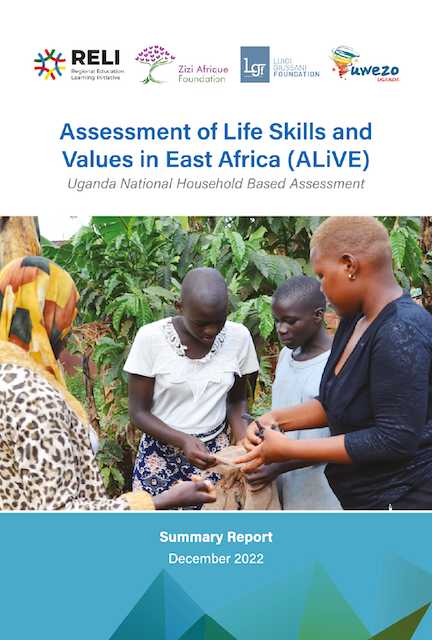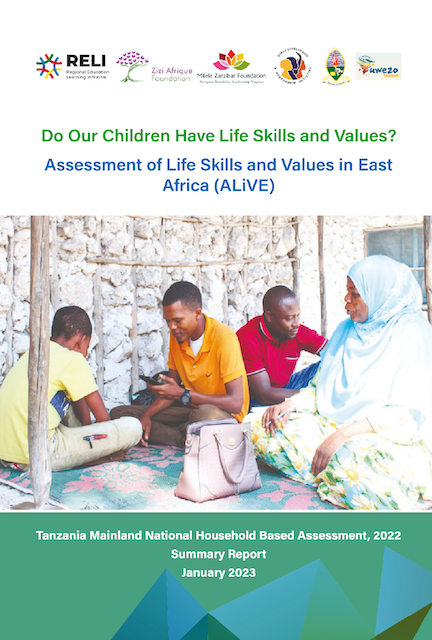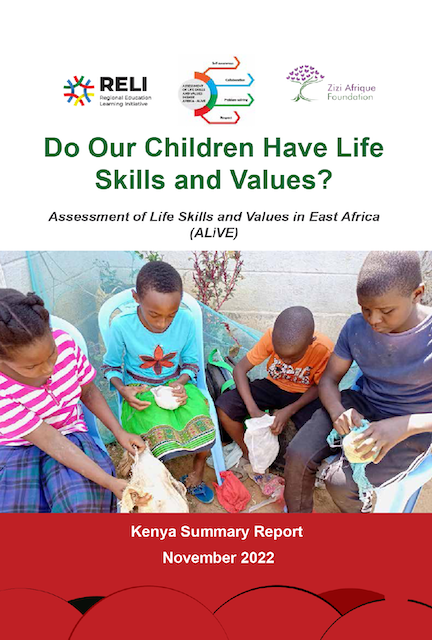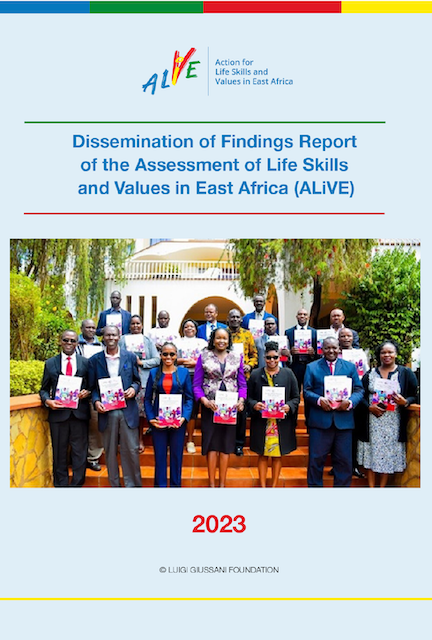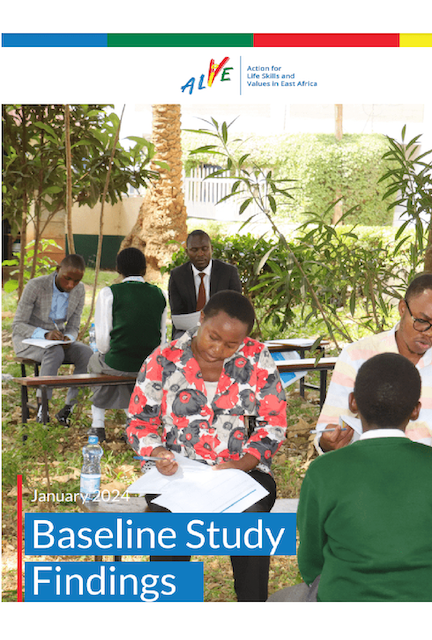This report describes the development and validation of the tool designed to measure proficiencies demonstrated by adolescents from 13 to 17 years of age in Kenya, Tanzania, and Uganda, in the three life skills and one value. Furthermore, the report provides results from the large-scale household-based assessment that used the tool. The information provides the background for the assessment results that are needed to inform policy of the participating countries as they seek to include life skills and values in their national curricula. It emphasizes discoveries that show differences, in skill levels among demographic categories such as gender, age and educational background. The outcomes aim to guide policies promote the incorporation of life skills and values into national educational programs and add to worldwide understanding of evaluating these vital life skills and values. Download
The conference highlighted the need to establish a contextual understanding of life skills education in the varied contexts. Proposing the development of a database to exhibit robust evidence and provide an avenue to learn about the best practices on nurturing life skills and values, and where the adapt/adopt the ALiVE tools for assessment of life skills and values will be stored. In addition, this repository would also help engage various stakeholders – a database documenting success stories on curriculum implementation within the classroom, and how this can be translated into the transfer and acquisition of actual skills among learners. Download
ALiVE has developed a valid and reliable tool for assessing problem solving, collaboration, self-awareness, and respect proficiencies of in and out-of-school adolescents in Uganda. This report draws attention to several issues which have implications for assessing life skills and values as well as developing life skills and nurturing values in East Africa. This is a call to action for all of us – how do we move from having a tool and evidence to ensuring that all our children in Uganda have the needed life skills and values to navigate the 21st century world? Download
The ALiVE assessment was conducted in 34 districts of Tanzania mainland, in July 2022. A total of 14,645 adolescents aged 13 to 17 years were assessed from 11,802 households. This one-on-one assessment was administered orally in the local language (Kiswahili) assessing collaboration, the adolescents worked in groups of four, some in separate gender (boys, girls) and some in mixed-gender groups. The assessment combined the use of scenarios with a scoring rubric to measure the skills, and performance tasks with an observation rubric to assess collaboration. Download
This report is a product of collaborative work among more than 2000 people across Kenya, Tanzania, and Uganda. A contextualized tool developed via a learning-through-doing approach by 47 people, advisory teams of more than 25 local experts, more than 100 trainers, and close to 800 assessors. This work is evidence of fortitude and our story of self-empowerment. ALiVE has developed a valid and reliable tool for assessing problem-solving, collaboration, self-awareness, and respect proficiencies of in and out-of-school adolescents in Kenya. This report draws attention to several issues that have implications for assessing life skills and values as well as developing life skills and nurturing values in East Africa. This is a call to action for all of us – how do we move from having a tool and evidence to ensuring that all our children in Kenya have the needed life skills and values to navigate the 21st-century world? Download
This report outlines the dissemination strategies, geographic scope, target demographics, and key outcomes of the ALiVE assessment findings dissemination efforts. It addresses pre-dissemination learning objectives and questions, highlighting focal areas, lessons learned, and suggestions for future improvements and best practices. Overall, the dissemination exercise not only served as a powerful advocacy tool but also provided a valuable learning experience for all involved stakeholders. It is hoped that this resource will serve as a valuable tool for insights that will be utilized in future engagements of a similar manner. Download
A deeper understanding of 21st century skills in East Africa (Uganda, Kenya and Tanzania) presented in a series of studies conducted in the aforementioned countries. It contextualises an understanding of self-awareness, respect, problem-solving and collaboration determining the skill structure and deriving a toolbox for a large-scale assessment of problem solving in all three countries. Problem Solving: Kenya Respect: Kenya Self-Awareness: Kenya Collaboration: Tanzania Problem Solving: Tanzania Self-Awareness: Tanzania Collaboration: Uganda Problem Solving: Uganda Respect: Uganda Self-Awareness: Uganda Understanding Collaboration: Phase 1 Assessment for Kenya, Tanzania and Uganda Understanding Problem-Solving: Phase 1 Assessment for Kenya, Tanzania and Uganda Understanding Respect: Phase 1 Assessment for Kenya, Tanzania and Uganda Understanding Self-Awareness: Phase 1 Assessment for Kenya, Tanzania and Uganda
To what extent are life skills and values embedded in the primary and secondary education systems of Kenya, Uganda, Tanzania Mainland, and Zanzibar? This study was evidenced by both explicit and implicit mentions of life skills and values in the curriculum, assessment, and teacher training documents/materials of the systems. In the four aforementioned countries of East Africa, the ALiVE Initiative conducted this study gathering the most current baseline information to determine the extent to which life skills and values are embedded in their education systems, providing evidence of how they progress over time. Study outcomes can be used in the future to track the extent to which life skills and values are integrated into their education systems and the advancement of the entire initiative. Download
